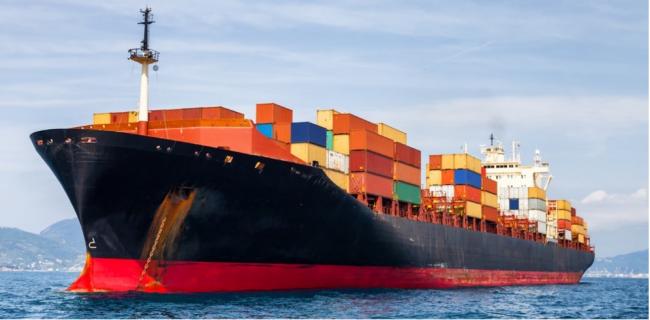Marine Biofuels
Over 300 million metric tonnes of heavy petroleum fuel oils are consumed each year to power the large marine merchant vessels responsible for transporting over 80% of all goods shipped worldwide. This sector accounts for up to 3% of worldwide carbon dioxide (CO2) emissions, and is the largest anthropogenic source of sulfur in the atmosphere and black carbon in the arctic. Biofuels are a known pathway towards reducing emissions when compared to fossil-derived petroleum fuels. This feature, when coupled with the ability of the large two-stroke marine engines to operate effectively on less stringent residual oils, provides an opportunity for minimally-processed biofuels (such as biomass, waste materials, and bio-intermediates) to be a cost-effective means of reducing future carbon and sulfur emissions from merchant marine vessels as stipulated by the International Maritime Organization (IMO). To determine the efficacy of biofuels as a replacement for marine petroleum fuel oils, research is needed to determine pathway cost reductions, scalability, and compatibility with existing marine engines, fuel storage, and distribution systems.

This Photo by Unknown Author is licensed under CC BY-ND.
Marine merchant vessels burning residual fuel oils are important contributors of worldwide emissions.
Marine Biofuel Research at the U.S. Department of Energy (DOE)
DOE’s Office of Energy Efficiency and Renewable Energy (EERE) Bioenergy Technologies Office (BETO) is conducting research at Argonne, Oak Ridge, and Pacific Northwest National Laboratories and the National Renewable Energy Laboratory to examine the economic and technical feasibilities, and evaluate the benefits in order to validate opportunities for biomass-derived fuels in the maritime sector to meet the carbon and sulfur reduction targets set by the IMO. Feedstocks of interest include agricultural residues, forestry residues, energy crops, micro-algae, urban wood waste, municipal solid waste, wet wastes (sewage sludge, animal manures, food waste), gaseous wastes (steel manufacturing and refinery off-gases), and CO2. A variety of feedstock pre-processing and conversion technologies are being investigated including biochemical, thermochemical, electrochemical, and hybrid approaches. The compatibility of potential biofuels with existing ship infrastructure is being assessed via experiments and stakeholder guidance.
The four national laboratories are working closely with industry stakeholders and the DOT Maritime Administration on the technical impacts, logistics, alternative marine fuel pricing, supply and demand analysis. These features were further addressed in a recent workshop on Marine Biofuels sponsored by the national laboratories.
Learn More
- Understanding the Opportunities of Biofuels for Marine Shipping, 2018, Oak Ridge National Laboratory
- Biofuels for the Marine Shipping Sector, 2017, IEA Bioenergy Task 39
- The Potential of Liquid Biofuels in Reducing Ship Emissions, 2020, The International Council on Clean Transportation
- The International Maritime Organization’s Commitment to Reducing Greenhouse Gas Emissions from Ships